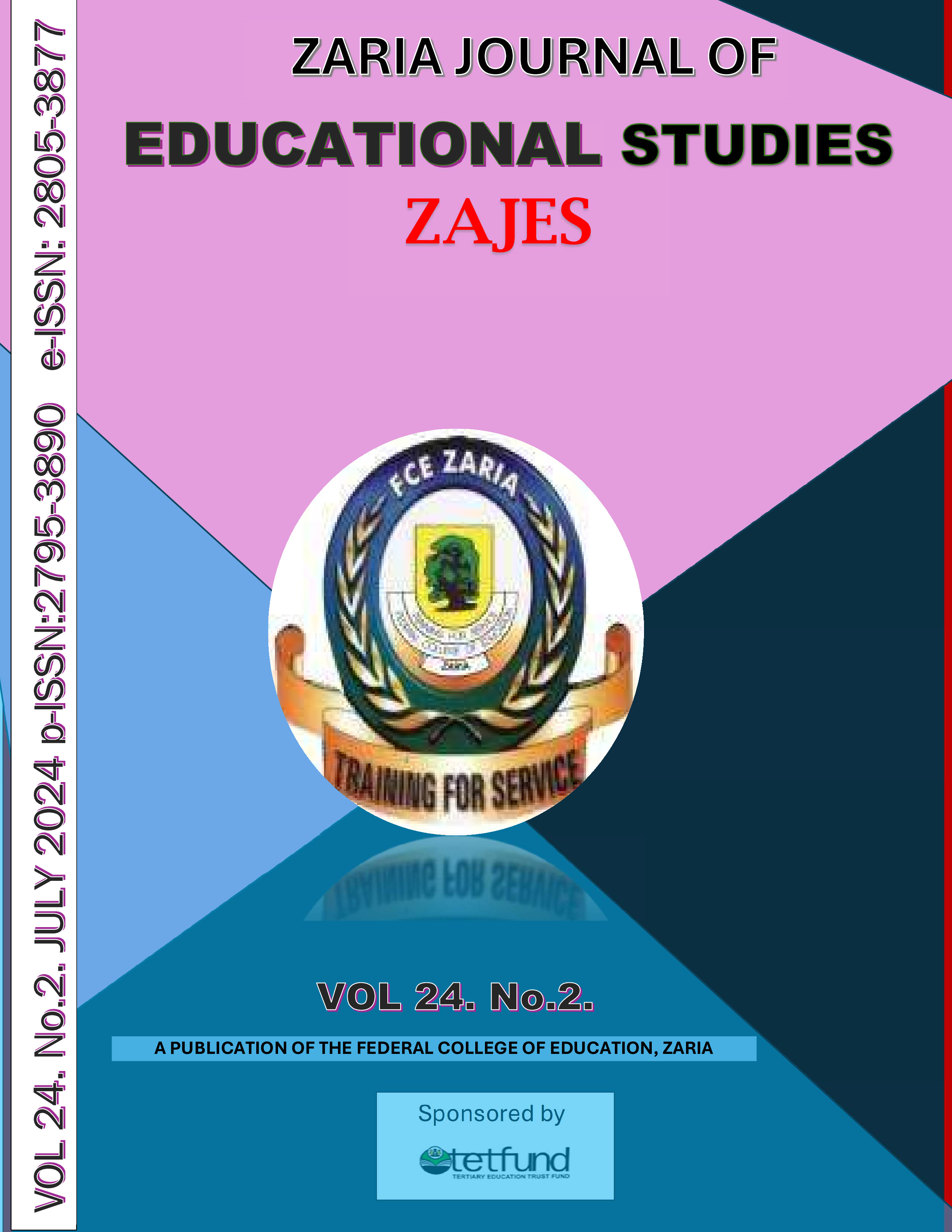Enhancing Christian Religious Studies Curriculum in Nigeria Colleges of Education for National Unity
Keywords:
Nigeria, Federal College of Education, CRS Curriculum, Unity, Interreligious DialogueAbstract
Agitation for secession and resource control in Nigeria revolve around a clamour for recognition of basic needs of people as it affects their cooperate existence. A unified people would ordinarily come together to negotiate their problems and find a way to forge ahead. The need for unity of all citizens irrespective of religious affiliation, and an eye on the acceptance of people despite their religious belief are matters of concern to the government and well-meaning Nigerians. Thus, one of the goals for which tertiary education is instituted in Nigeria, among which are the Colleges of Education, is to “forge and cement national unity; and promote national and international understanding and interaction” (Federal Republic of Nigeria, 2013). The goal is further reiterated in the philosophy of Nigeria’s education, which envisioned the citizens “living in unity and harmony as one indivisible, indissoluble, democratic, and sovereign nation founded on the principles of freedom, equality, and justice” (Federal Republic of Nigeria, 2013:1). However, the envisaged unity enshrined in the National Policy on Education is flouted by the ideals upheld by the catechetical and pastoral orientation of the religious education curricula in Nigeria Colleges of Education. The current Christian Religious Studies curriculum in Nigerian Colleges of Education is confessional centric. The curriculum is essentially exclusive in nature and contents with little attention to the promotion of interreligious dialogue and peaceful co-existence of citizens in the country. This paper adopts an analytical approach to examine the contents of the curriculum with the aim of proffering suggestions towards enhancing the curriculum for a more pluralistic content. The paper proposes a model of CRS curriculum that is inclusively pluralistic in nature and contents for a robust interreligious dialogue and unity of citizens in the country.

